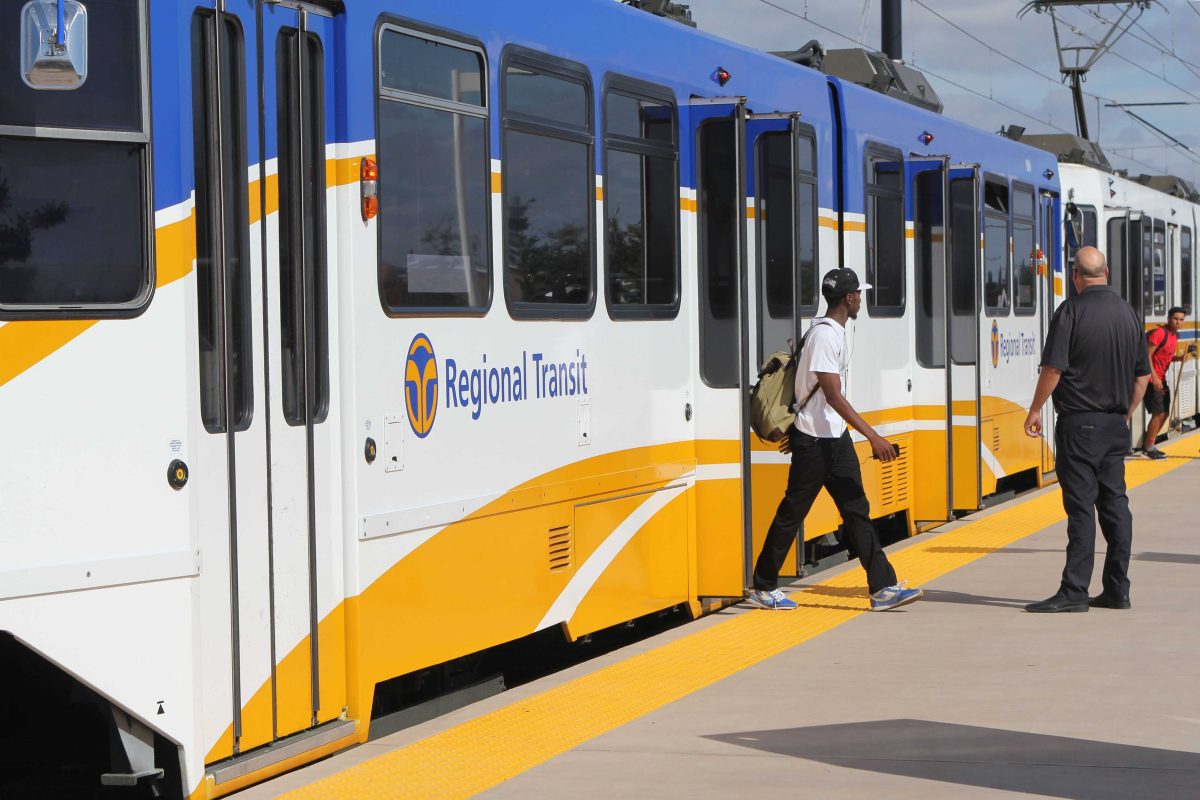Students to determine outcome of transit pass
Students will be able to vote on the proposal, Measure A, on Sept. 22-23. A yes vote on Measure A will continue low transit rates for students.
With Cosumnes River College’s student elections coming up on Sept. 22 and 23, the Los Rios Community College District is calling all of its students to vote on a new proposal called Measure A, which would determine whether the Universal Transit Pass with Sacramento Regional Transit will be renewed.
The UTP is a pass, in the form of a sticker on the Los Rios ID card, for students to take any from regional transit, like the bus or light rail system, completely free for every single use for an entire semester.
“I saw the signs around [for Measure A], it’s a very serious thing,” said computer science major, Aaron De Lara, 20. “I live down in Elk Grove and it’s pretty far away and I have no other way to get here.”
Nearly 30,000 students across LRCCD used RT buses and light rails, adding up to 4.4 million rides total in 2014, according to the CRC Voter Guide, located in the Elections section of Student Services.
The number of students who use the UTP means that the vote could have major benefits if passed or major consequences if it fails, as it will be the difference between paying $8.40-$31.50, depending on units being taken by the student, or $500, per semester.
All students who are enrolled in three units or more at any of the Los Rios District campuses can vote on Sept. 22-23 by going to the ‘Elections & Surveys’ tab within eServices.
“The college encourages students to vote ‘yes’ on Measure A during the special election to approve the Universal Transit Pass,” said Public Information Officer Kristie West. “The contract with Regional Transit is about to expire and it’s time to negotiate a new one.”
If this vote fails, the current UTP system remains in effect until it expires in November 2016. After that, students would be required to pay the Single Pass fee of $2.50 for every ride, the $6 Daily Pass fee, or an $100 monthly fee.
“I would vote,” said video game design major Chris Ortiz, 22. “To really get this going, we need to make sure that people still pay $8 for that transit ticket because it’s cheaper on people because a lot of people don’t have money.”
If the vote passes and the UTP is renewed, eligible students would pay $2.10 per unit for three or more units, with the fee capped at 15 units. This means that a student taking four units a semester will pay $8.40, a student enrolled in 12 units a semester will pay $25.20 and a student enrolled in 15 or more units a semester will pay $31.50, according to the CRC Voter Guide.
RT has transfer agreements with other RT agencies, which means RT has connections with Davis, Folsom, Roseville, Sacramento International Airport, West Sacramento, Woodland and all throughout Sacramento County. These transfer agreements are subject to change if RT’s cost needs are not met, according to the Voter Guide. If these transfer agreements change, this will have a major effect on commuting students and students coming from parts of the Sacramento region that may be further away.
This vote could be a major change that students may not be entirely prepared for financially. Hannah Elabbassi, a 20-year-old business major believes it could even go further than just figuring out a different method transportation. She said, “students would be discouraged to come to school at all.”
If Measure A were to pass, the agreement would begin in the spring semester and continue for five years after that, expiring again in Dec. 2021. This would require another renewal vote in the 2020-2021 academic year, according the the Voter Guide. However, if the vote doesn’t pass this year, UTP may not come back to CRC again at all.
“After several years partnering with RT, who has kept the cost very low for our students, there was a need to raise the fees slightly due to the rise in operational costs,” West said. “However, it is still an extremely good deal for CRC students saving them more than $900 a year off the regular RT pass. Continuing this program is a win-win for our students and our effort in keeping cars off the road.”
Staff writer Mariah Rios contributed to this story.

